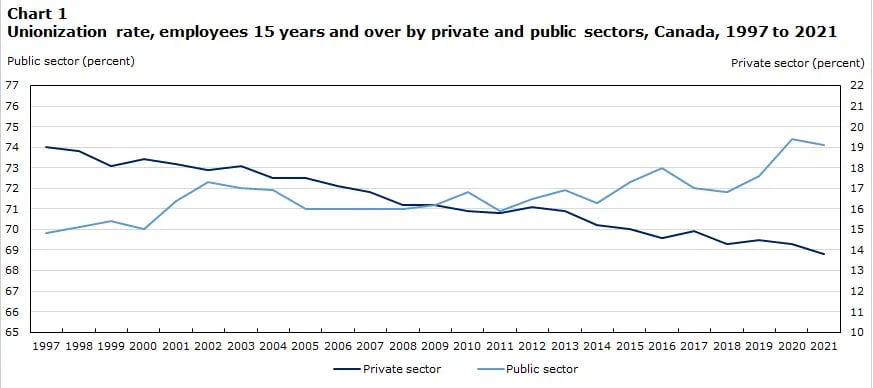#greve19janvier
Yes, trade unions do matter
We arrived in France just in time for Grève du 19, a national day of strikes and happy, noisy, upbeat protests. It served as a reminder that when working people stand up en masse, governments have to listen.
There were also tons of young people out today to protect their parents, grandparents, and eventually themselves.
Today’s actions centered around Emmanuel Macron’s plan to raise the age at which workers could receive a full government pension from 62 to 64… by 2030. Canada is still stuck at 65 as the “official” retirement age. While the Canada Pension Plan has a maximum payout of $1,306, Macron’s deal is offering retirees a minimum of €1,200, or $1,750 Canadian.
Why is France so much more generous to those who have spent their adult lives working hard at their jobs? In a nutshell, strong unions, and unions prepared to walk off the job to make a point.
According to Statistics Canada the decline in unionization is really a private sector problem, as public sector unionizations actually grew.
The 1997-to-2021 decrease in the unionization rate was driven by the private sector. The unionization rate for private sector employees fell from 19.0% in 1997 to 13.8% in 2021. In contrast, 74.1% of public sector employees were union members in 2021, 4.3 percentage points higher than in 1997.
Or, in graph form:
In France, according to the ETIU, the number of unionized employees only hits 11.2%, according to the rate recalculated by the French Ministry of Labour in 2016: 19.8% in the public sector and 8.7% in the private sector.
However the 11.2% number is deceptive, as French collective agreements also set standards for many more workers: “Despite low union density, the coverage rate of collective agreements is one of the highest of all OECD countries: 98% in the private sector, including state-owned companies.”
This reflects the laws in France, laws that governments were forced to bring in after large-scale industrial actions.
All of which leads me to think back to the heady days of Canada’s union movement, and the current lack of any serious industrial action in our country. Over the last few decades Canadian workers have been convinced that they have no choice but to accept whatever an employer - or a government - sets down in front of them.
That is not, and has never been true.


